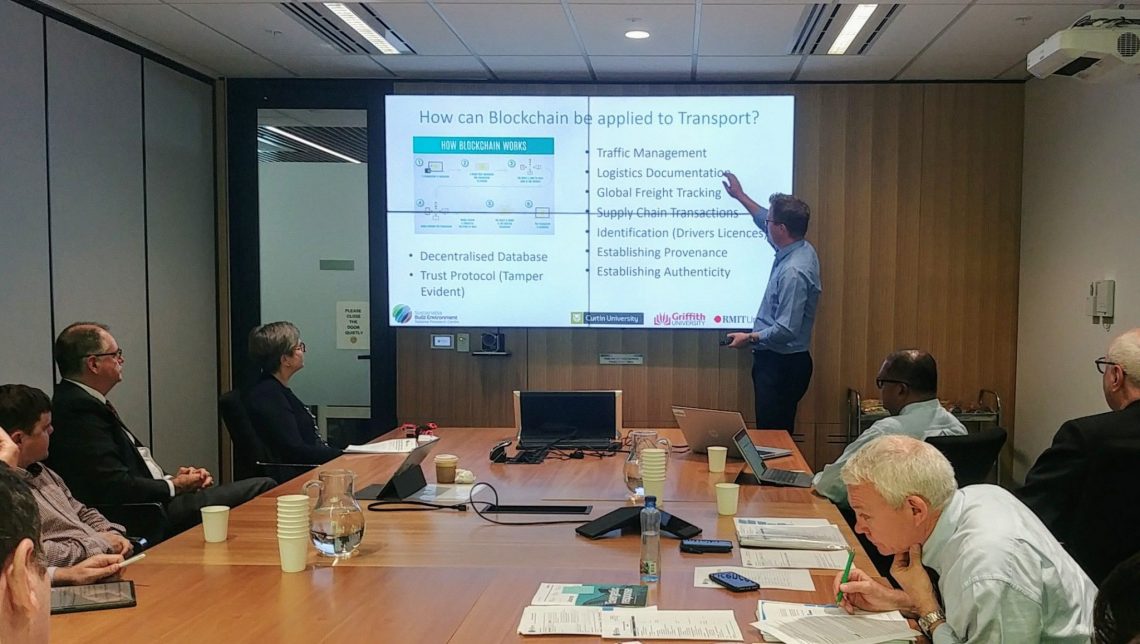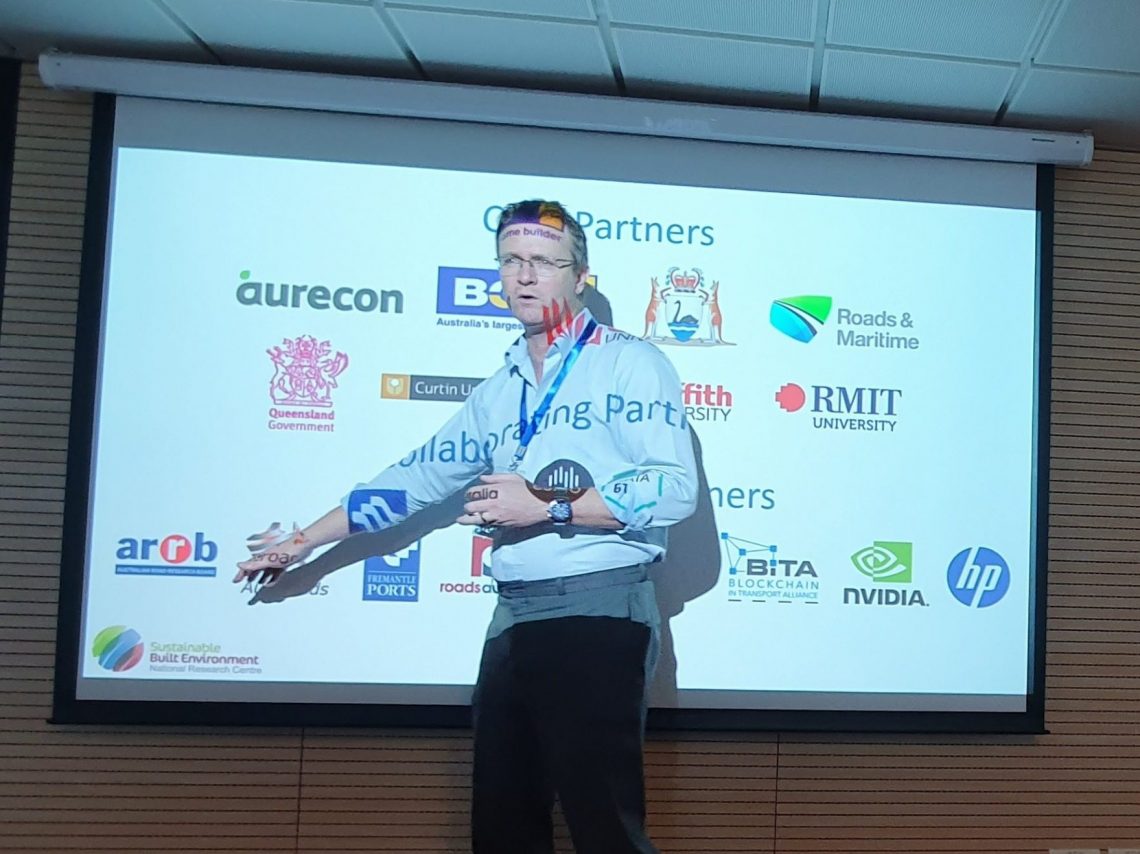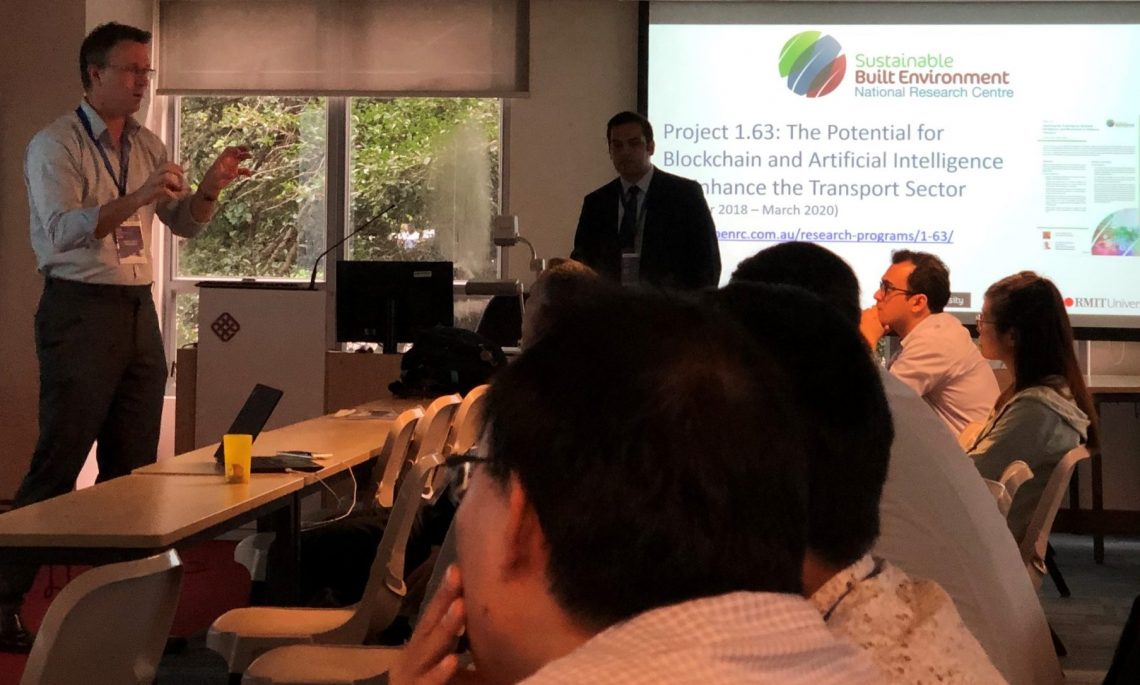
1.63 Exploring the Potential for Artificial Intelligence and Blockchain to Enhance Transport

Project Number
1.63Round
Round 6Date
October 2018 - March 2020Research Team

Chair, Project Steering Group
Dr Ken Michael AC
FIEAust FTSE

Project Manager
Dr Charlie Hargroves
BE (Civil), PhD
Curtin University
charlie.hargroves@curtin.edu.au
Documents for Downloading
Videos
Full Video – Exploring the Potential for Artificial Intelligence and Blockchain to Enhance Transport, March 2020 (5:21)
Project Summary – Exploring the Potential for Artificial Intelligence and Blockchain to Enhance Transport, March 2020 (3:10)
Presentations
Engineers Australia Transport Australia Society Webinar (June 2020, 4Mb)
The Potential for Blockchain and Artificial Intelligence to Enhance the Transport Sector, SBEnrc Boardroom Briefing, Perth, Australia (13 November 2019, 1Mb)
The Potential for Blockchain and Artificial Intelligence to Enhance the Transport Sector, presented by Charlie Hargroves, CIB World Building Congress, Hong Kong, 17-19 June 2019 (1Mb)
Media
Media Release: Report finds AI and Blockchain could transform Australia’s transport sector (September 2020)
Press Release: Report finds AI and Blockchain could transform Australias transport sector (September 2020, 140Kb)
Press Release: Investigating the Potential for Artificial Intelligence and Blockchain Technology to Enhance the Transport Sector (5 August 2019, 580Kb)
Publications
Karlson Hargroves, Daniel Conley, Bela Stantic (2019) The Potential for Blockchain and Artificial Intelligence to Enhance the Transport Sector, CIB World Building Congress, Hong Kong, 17-21 June 2019 (637kb)
This project will explore a range of digitally-driven opportunities and challenges in seeking to get cities moving and functioning better; with a focus on the application of Artificial Intelligence and Blockchain technologies to enhance the effectiveness of transport systems. The research will identify specific potential applications and outline where such technology can provide tangible benefits for the road transport sector and the associated policy and management structures. The project will focus on a set of partner-preferred use cases such as congestion management, road user pricing, asset management, mobility-as-a-service and freight logistics. Following this, the project will identify specific areas of application of the technologies going forward in collaboration with partners.
Objectives
Building on previous related SBEnrc research, this project will provide transport and mobility related agencies and service providers with guidance as to how the application of Artificial Intelligence and Blockchain can deliver tangible benefits.
The specific objectives are to:
- Develop a clear working understanding of the functionality of Artificial Intelligence and Blockchain Technologies.
- Investigate what potential there is for Artificial Intelligence and Blockchain Technology to provide value to transport agencies and service providers, either individually or in combination.
- Identify the risks and rewards for the transport sector, including a further review of early findings from the application of such technologies in transport sectors around the world.
- Recommend strategic approaches around selected options for the implementation of Artificial Intelligence and Blockchain Technologies in the transport sector. Such recommendations will provide a framework to inform a standard approach across agencies to allow shared knowledge.
- Identify specific policies and mechanisms to support the future implementation of these technologies in the Australian transport sector.
Industry Outcomes
The project will deliver:
- An increased capacity of road and transport-related agencies and service providers to understand the early stage use cases for Artificial Intelligence and Blockchain in order to best harness this emergent and rapidly advancing technology.
- The identification of multiple use cases of value to the transport sector with consideration of lessons learned from early efforts and recommendations as to strategic approaches.
- Specific benefits such as:
-
- Cost savings (digital payment mechanisms, virtual toll collection and congestion charging, capital deferment through greater network utilisation)
- Time savings (from improved transport network operation and management)
- Improved operations (such as real-time pay-as-you-drive systems with network differential pricing ability)
- Improved safety (from reduced collisions and impacts)
- Improved user experience (such as automated payments for parking and bookings)
- Improved freight and logistics (such as secure time-stamped travel-related data).















